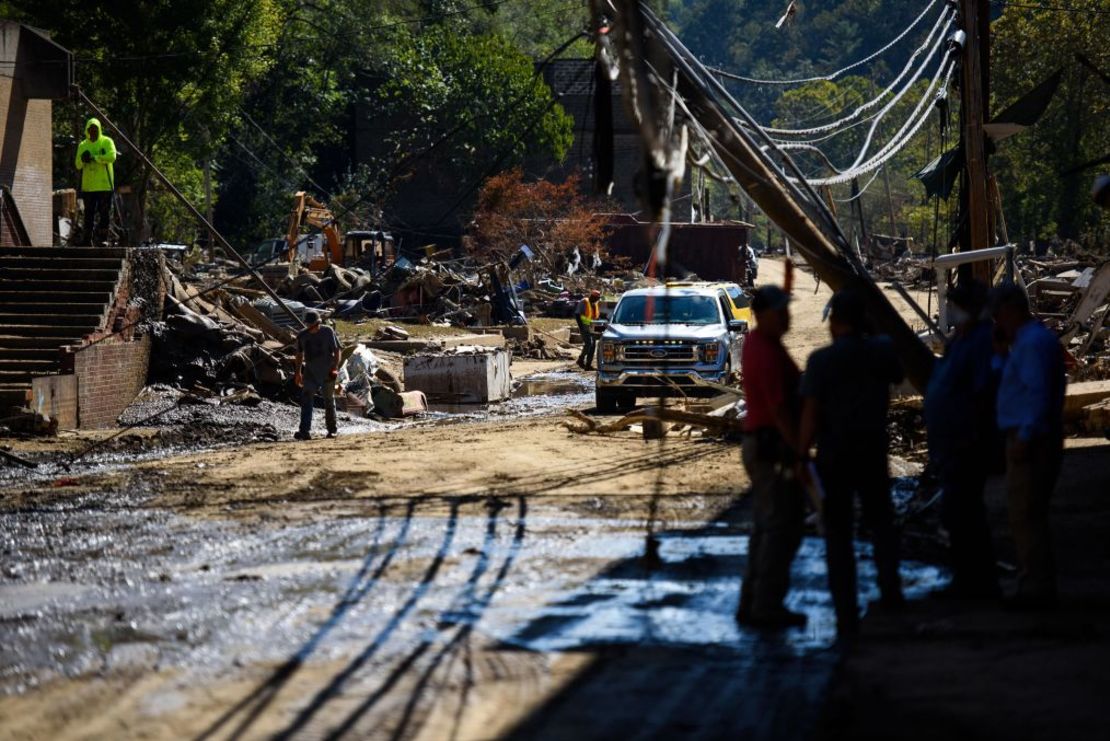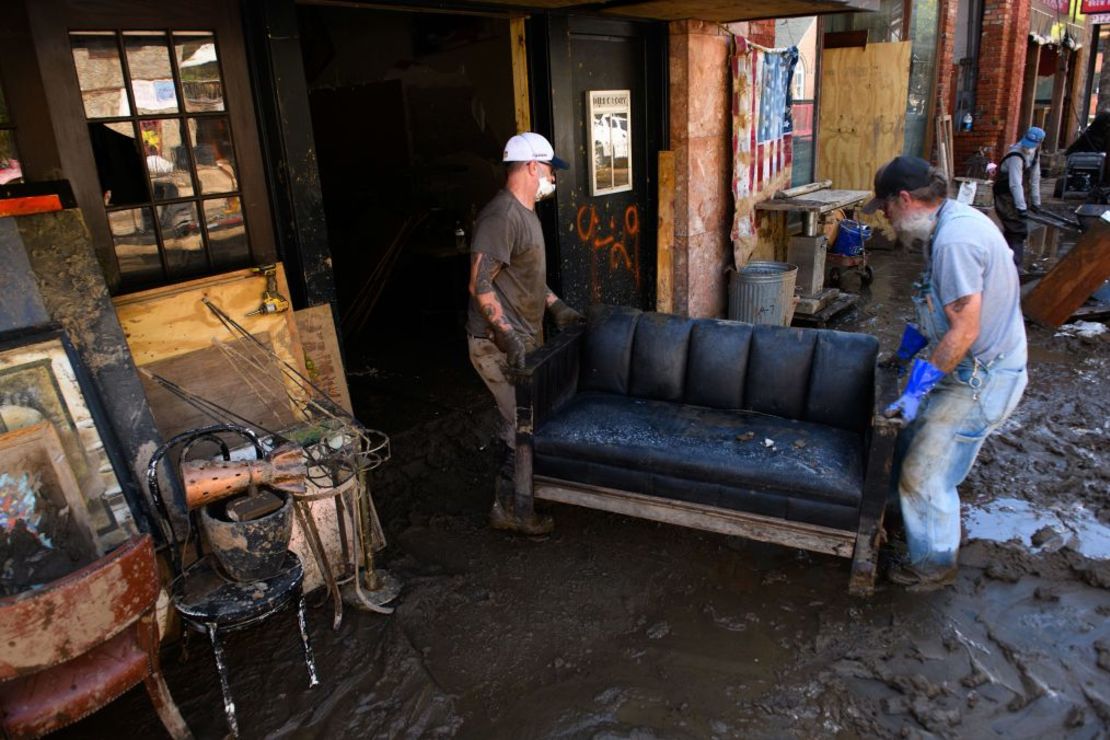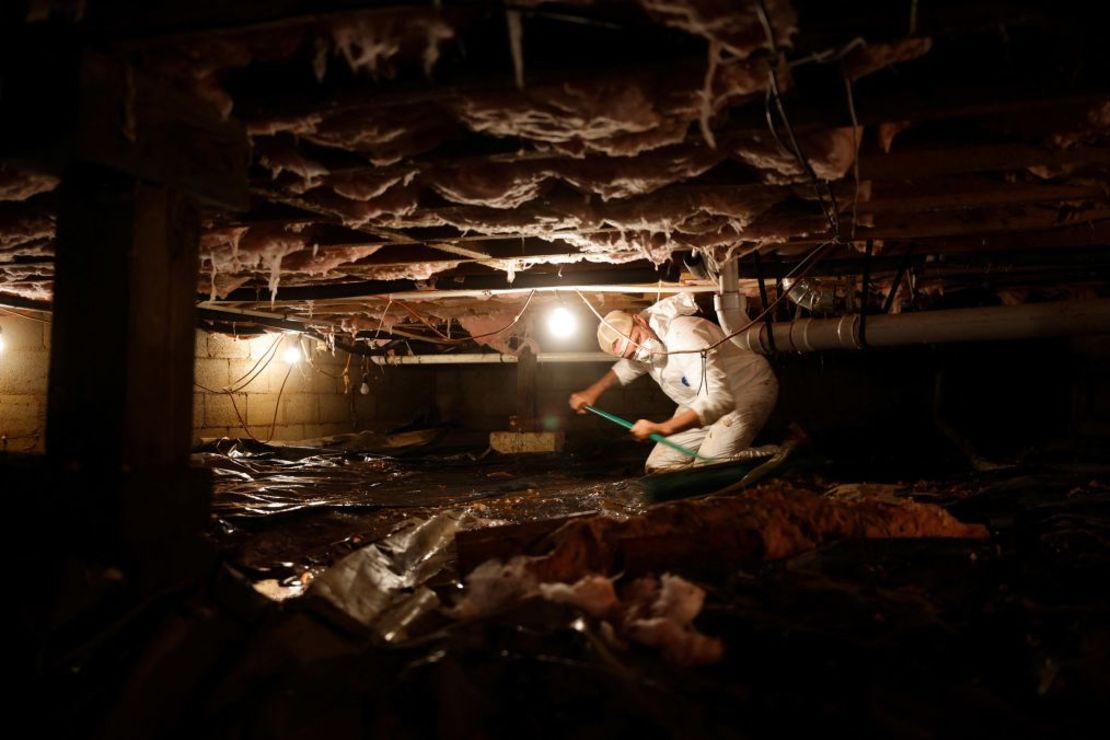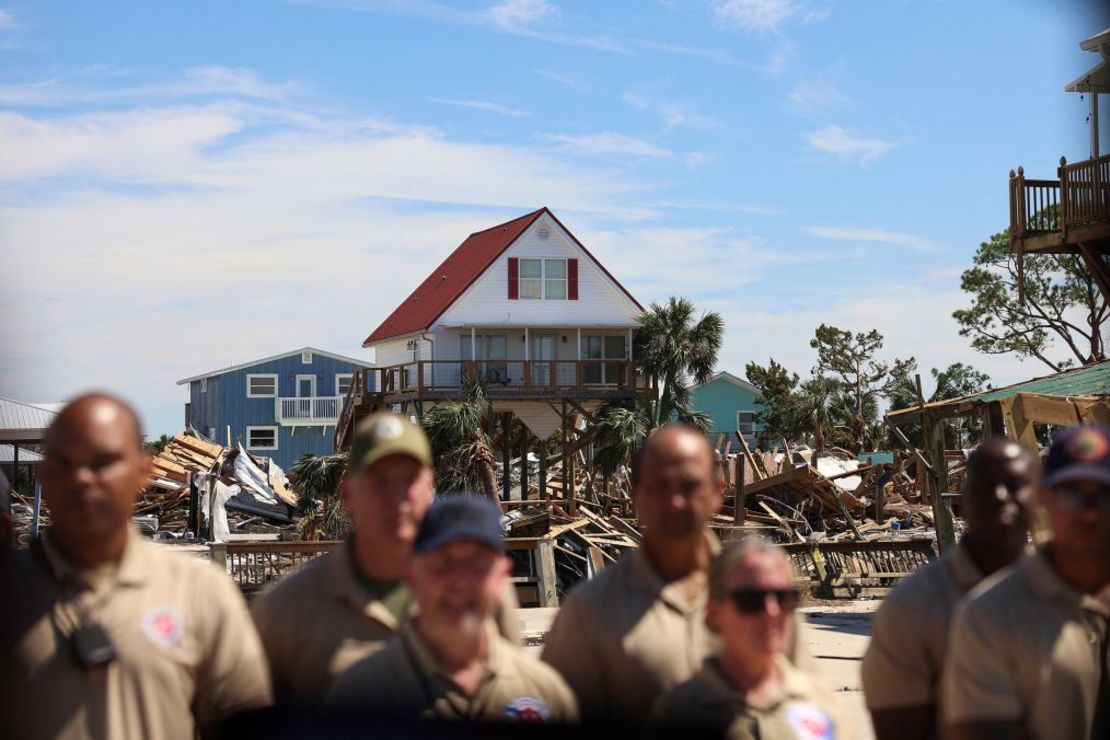() – It was more than a week ago that Helene barreled into Florida’s Gulf Coast as a major hurricane and began carving what would become a deep scar of loss and destruction all the way to Virginia, leaving at least 213 dead and destroying countless homes. businesses and valuable belongings of a lifetime.
The search for missing loved ones is becoming more desperate every day, as authorities claim that there are hundreds of people missing. Rescuers are hampered by cell service outages and crumbling roads and bridges, as federal officials warn that money to help people recover is scarce with 57 days left in the season. hurricane official.
Although stories of resilience continue to emerge, such as that of a woman rescued last Friday from a waist-deep flood by a group of wedding guests, since then there have also been people who have had to walk for hours to see how They found their loved ones trapped and searched for those who had been swept away by the rivers. In Buncombe County, North Carolina, where Asheville is located, more than 200 people were missing as of Thursday, and 72 had died, according to the county sheriff.
The extent of the destruction has become more apparent as people have slowly regained access to neighborhoods, often only to find their homes in tatters or completely washed away.
A couple from Swannanoa, North Carolina, had a narrow escape last week when a flood turned their neighborhood into a river, gushing into their home and sweeping their truck down the street, they said. They returned to find that the contents of their house had been overturned and covered in mud, almost all of it destroyed.
“We lost pretty much everything we had, including the vehicles,” Joe Dancy told ‘s Laura Coates on Thursday night. “But we have the most important thing: our lives. And always and forever we will be grateful for that.”
Helene has become the deadliest hurricane to hit the continental United States since Hurricane Katrina in 2005, with the death toll rising by the day. North Carolina is the state that has recorded the most deaths, with 106, followed by 41 in South Carolina, 33 in Georgia, 20 in Florida, 11 in Tennessee and two in Virginia, according to .
A massive relief effort is underway across the region to restore shattered power grids and rebuild damaged water and mobile infrastructure. Transportation infrastructure across the region has also suffered “unprecedented damage” after Helene wrecked and washed out roads and blew up bridges, Polly Trottenberg, deputy secretary of the U.S. Department of Transportation, said Thursday.
Hundreds of roads remain closed, hampering efforts to send aid to the hardest-hit communities. And for those who left Helene early, the closures have delayed their return to check on family, friends and the status of their homes. Some areas are so inaccessible that supplies are being shipped by mule and by air.
Power has been restored to more than 3.3 million homes and businesses, FEMA Individual Assistance Director Frank Matranga said Thursday. More than 600,000 power customers were still in the dark on Friday, according to PowerOutage.us.
About 170,000 electric customers in the North Carolina mountains are entering their second week without power. Bill Norton, a spokesman for the region’s energy provider, Duke Energy, warned Friday that outages could be longer for homes and businesses that suffered “catastrophic damage.” “105,000 customers are without power in those types of areas,” Norton said, adding that there is no estimate of when power will be restored. “It has been a storm like we have never experienced in our history.”
Matranga said FEMA knows that for many families, the road to recovery begins with turning the lights back on and reconnecting with loved ones.
“Restoring electricity and communications is not just about making things more comfortable; is about keeping people safe, informed and able to access the services they need,” he said.



Mobile phone service is also slowly being restored, and less than 50% of mobile phone services were still down as of Thursday, he added. Starlink, SpaceX’s satellite Internet service, advertisement which will provide free service for 30 days in regions affected by Helene.
Bathing and washing dishes have also become a luxury in places where drinking water is scarce. In Buncombe County, residents get drinking water from tanker trucks and bottled water shipments, but it is in short supply for other daily activities. And in some parts of Tennessee, damage to water and sewer treatment facilities has led officials to ask residents to save non-essential water and boil drinking water.
The influx of federal resources and personnel has bolstered recovery efforts. It has been activated almost 7,000 members of the National Guard, who have participated in high water rescues, debris cleanup, search and rescue, and supply distribution. In North Carolina, Guard members have been airdropping supplies and moving people and pets to safe places.
The Federal Emergency Management Agency (FEMA) has sufficient funds to provide immediate disaster relief after Helene, according to an agency spokesperson. But with a long road to recovery ahead, and with the possibility of more hurricanes forming this season, the agency may find itself digging deep into its portfolio.
“FEMA has what it needs for immediate response and recovery efforts,” posted on Thursday FEMA spokesperson Jaclyn Rothenberg told
The assessment comes after Homeland Security Secretary Alejandro Mayorkas told reporters Wednesday that, with another hurricane expected to hit sometime in the coming months, “we don’t have the funds. “FEMA does not have funds to get through the season.”
So far, FEMA has provided more than $20 million in aid to people affected by Helene, Matranga said Thursday.
President Joe Biden suggested this week that he might ask Congress to reconvene during its October recess to approve emergency supplemental funding for storm recovery efforts. “It can’t wait. It can’t wait. People need help now,” Biden said Thursday when asked when he would like it to happen.


Local business owners could bear the brunt of the funding shortage. The coffers of the Small Business Administration’s (SBA) disaster relief programs, which were supplemented in the wake of the Maui fires in 2023, are nearly empty.
The White House warned last month that a Republican-led short-term government funding bill did not increase funding for the SBA, suggesting that the agency’s disaster loan program, which provides low-interest loans of up to US$2 million, would be “effectively ceasing operations” due to lack of financing.
As Helene passed by, neighbors and onlookers sprang into action to help each other.
What began as preparations for a wedding rehearsal in Grassy Creek, North Carolina, last Friday quickly turned into a water rescue when Eddie Hunnell, the groom’s father, heard that a woman was trapped in her home. , near the River House accommodation.
Hunnell asked the inn owner for a life jacket, a rope and a paddle, he told . After running out, he ran into the woman’s husband, Phil Worth, who explained that his wife, Leslie, was trapped in their house and couldn’t get out.
Hunnell and Worth took a canoe and tried to reach Leslie, but they couldn’t.
“We were trying to figure out how to get it out and we were running out of ideas,” Hunnell said. “I was pretty sure the house was going to collapse, and my biggest worry was that it would collapse on Leslie.”
Eventually, the couple noticed that the roof of another house was floating down the river toward the Worth house. Debris from the roof hit the house where Leslie was trapped, video provided by the Hunnell family shows.
Soon, their house began to tilt under the force of the flood, and a piece of the house fell away.
“Leslie was standing there, waist-deep in water,” Hunnell said.
Everyone started yelling at him to jump.
“I got into the canoe to try to get to her. I couldn’t maneuver well enough. The water was too fast and the wind was blowing too much,” Hunnell said.
“So I jumped in and started swimming toward her,” he said. “I had been looking for a solution for 30 minutes, and I didn’t have one. So I ran out of ideas and thought my wife was going to kill me, and I jumped.”
Hunnell reached out to Leslie, grabbed her by the back of her life jacket and told her to kick as hard as she could toward the shore, he said. The two ended up jumping into slower waters and swam to shore.
Those waiting on the shore burst into tears when the couple arrived safely on land.
Despite the chaotic afternoon, Hunnell invited the Worths to the wedding rehearsal dinner.
“They came with the clothes they were wearing. “I think we bought clothes for Leslie and I think we bought pants for Phil,” he said.
The next day, the wedding was celebrated with half the guests and without electricity, illuminated by more than 100 candles. Neighbors used chainsaws to clear the roads.
“The wedding went great,” Hunnell said. “Everything before the wedding was kind of a disaster.”
– ‘s Holly Yan, Kayla Tausche, Sam Fossum, Haley Talbot, Sara Smart, Emma Tucker, Andy Rose and Steve Almasy contributed to this report.





![[Img #74683]](https://thelatestnews.world/wp-content/uploads/2024/12/The-main-mistakes-to-avoid-when-betting-on-electronic-sports-150x150.jpg)










Add Comment